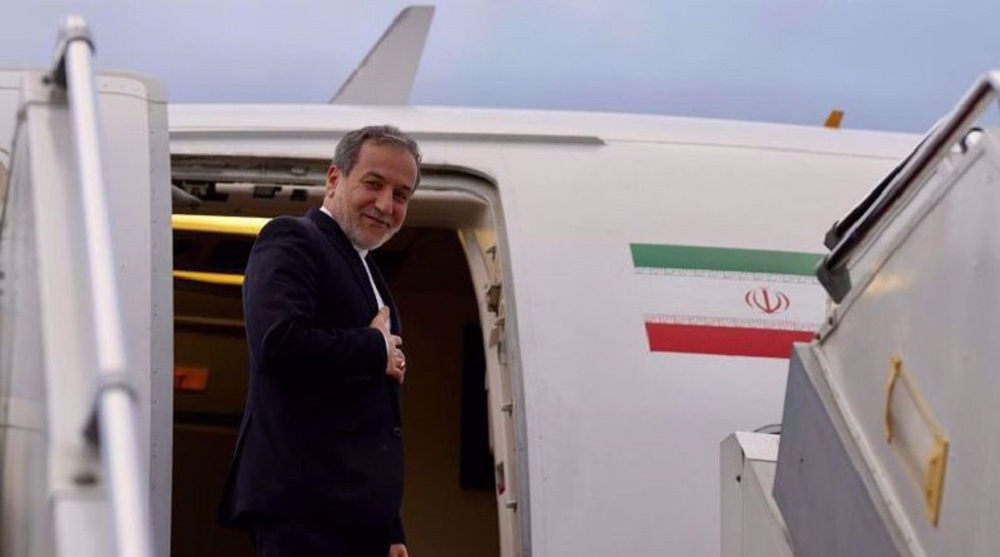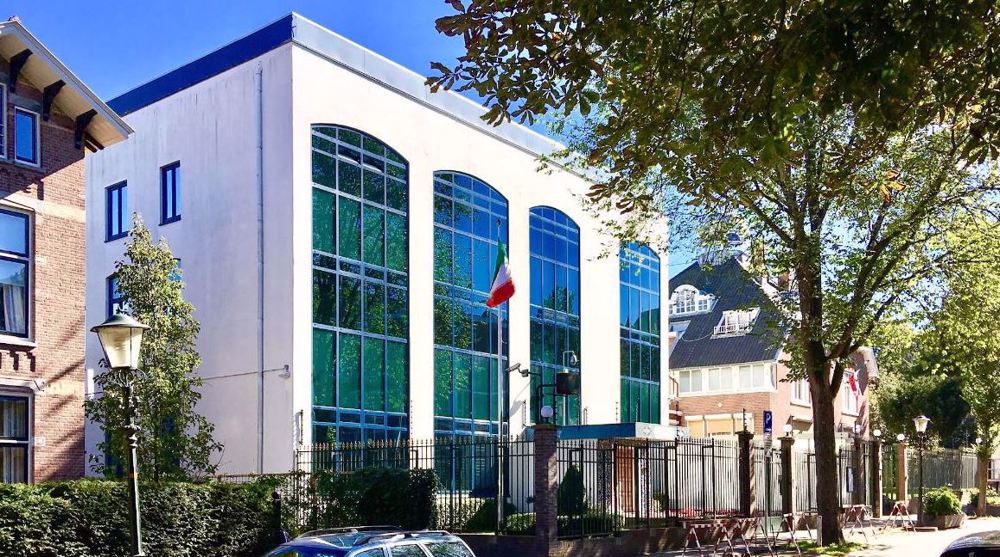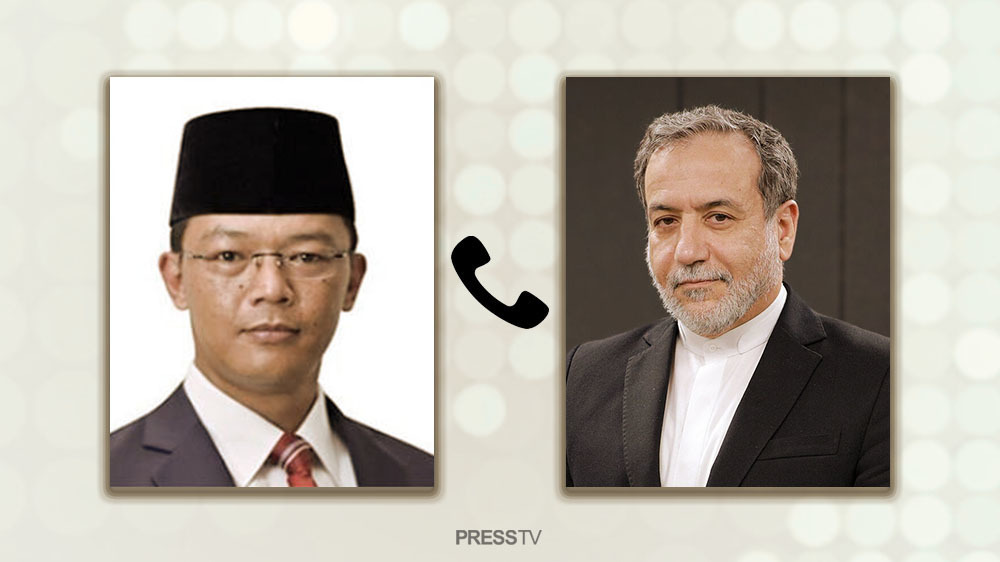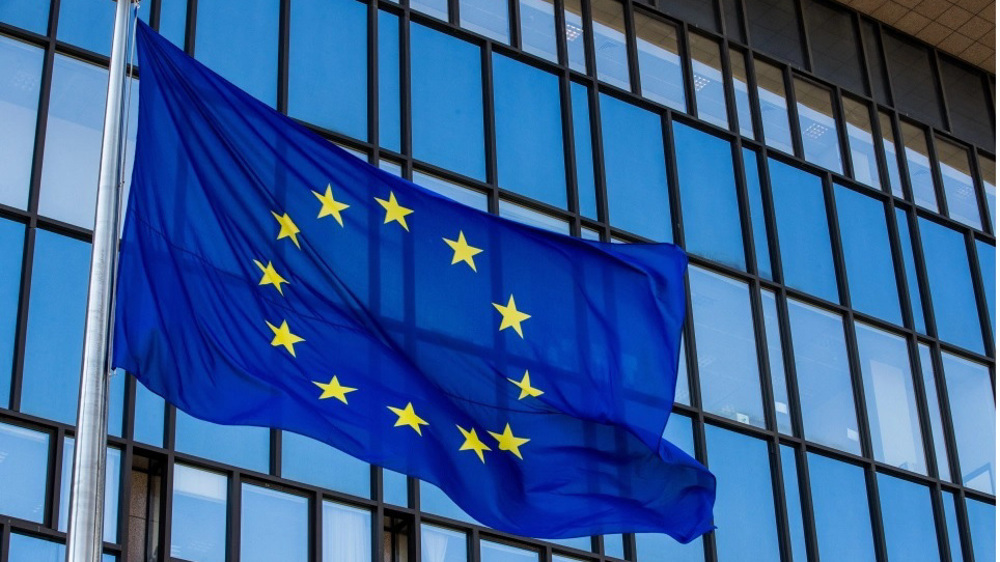EU sanctions Press TV, Iranian officials over alleged rights violations following foreign-backed riots
The European Union has imposed sanctions on a number of Iranian institutions and individuals, including the 24-hour English-language Press TV, over alleged “rights violations” following the recent foreign-backed riots in the country.
The European Union on Monday announced new sanctions on a further 29 Iranian officials and three organizations for alleged crackdown on protests, which began following the death of Mahsa Amini, a young Iranian woman, who collapsed in police custody and was pronounced dead a few days later at hospital.
The 29-member bloc imposed visa bans and asset freezes on Iranian Interior Minister Ahmad Vahidi, four members of the police squad that arrested Amini, high-ranking members of the Islamic Revolution Guards Corps (IRGC), including its provincial commanders, the commander of the Iranian Army's Ground Forces, and state broadcaster Press TV, which it accused of airing "forced confessions of detainees," an EU statement said.
Experts believe that sanctions imposed on Press TV by the EU, and earlier by the government of Canada, are aimed at muzzling free speech and alternative views. They have also highlighted the role played by Press TV during the recent riots, as the news channel made a great effort to counter fake narratives fostered by Western media concerning Iran’s riots.
Meanwhile, despite EU’s fake claims that “Press TV is responsible for producing and broadcasting the forced confessions of detainees,” no such forced confessions have ever been produced or broadcast by the English-language news channel during the recent riots.
"We stand with the Iranian people and support their right to protest peacefully and voice their demands and views freely," EU foreign policy chief, Josep Borrell, said in a statement.
In a first round of sanctions earlier in October, the EU imposed travel bans and asset freezes on 15 Iranian individuals and institutions linked to Amini's death and the clamp-down on protests.
Iran's Foreign Minister Hossein Amir-Abdollahian warned in October that Tehran will take reciprocal action if the European Union imposed any restrictive measures against the Islamic Republic over the recent riots in the country.
Iran also announced tit-for-tat sanctions against institutions and individuals in the European Union last month due to their deliberate actions in support of terrorism and terrorist groups.
Iran’s Foreign Ministry once again strongly rejected and condemned the EU’s October 17 sanctions targeting Iranian individuals and entities, saying they were baseless accusations that constitute a clear example of interference in Iran’s domestic affairs.
In response, it added, the ministry hereby announces sanctions against a number of individuals and entities within the EU due to their “deliberate actions in support of terrorism and terrorist groups, encouraging and inciting terrorism, violence, and hatred, which has caused riots, violence, terrorist acts, and human rights violations against the people of Iran.”
Riots broke out in Iran in mid-September after the death of Amini. The 22-year-old fainted at a police station in Tehran and was pronounced dead three days later in hospital. An official report by Iran’s Legal Medicine Organization concluded that Amini’s death was caused by illness rather than alleged blows to the head or other vital body organs.
Rioters went on a rampage, brutally attacking security officers and causing massive damage to public property as Western powers, especially the United States, provided support.
Earlier in the month, Iran’s Intelligence Ministry said the United States and the United Kingdom were “directly” involved in the unrest, adding that dozens of terrorists affiliated with the Israeli regime and anti-revolution groups have also been detained in the unrest.
Britain sanctions Iranian officials over alleged crackdown on rioters
Britain on Monday imposed sanctions on Iranian officials, including a government minister, over what it claimed to be a "violent repression of protests" in the country.
The British government said it had added 24 designations under its Iran sanctions regime related to human rights.
The sanctions included Iranian Communications Minister Issa Zarepour and a range of local law enforcement and security officials, the British foreign office said in a statement.
These sanctions target officials within the Iranian government who are responsible for human rights violations, Foreign Secretary James Cleverly said.
He also called for an end to what he alleged to be a violent crackdown on protests and freedom of expression.
The sanctions include asset freezes and travel bans.

Iranian FM Araghchi heads to Muscat for indirect talks with US

Iran rejects 'baseless' Dutch claims about plotting assassinations

Indonesia, Iran stress commitment to expanding relations
Norway establishes diplomatic ties with State of Palestine amid Israel's Gaza genocide
‘Foremost priority’: Iran says ‘ready’ to forge greater understanding between Pakistan, India
Ukraine may have to 'give up land' to Russia to secure peace: Kiev mayor
VIDEO | UN blasts Israeli settler deadly violence as settlers storm West Bank town, desecrate shrines
Lebanese parliament speaker rejects disarmament of Hezbollah amid Israeli aggression
China supports Iran’s peaceful nuclear program, diplomatic engagement: Envoy
Yemen vows payback as Saudis, Emiratis whisper dirty US plots in the dark
Oil Minister Paknejad: Russia to build nuclear plant in Iran with own funds







 This makes it easy to access the Press TV website
This makes it easy to access the Press TV website